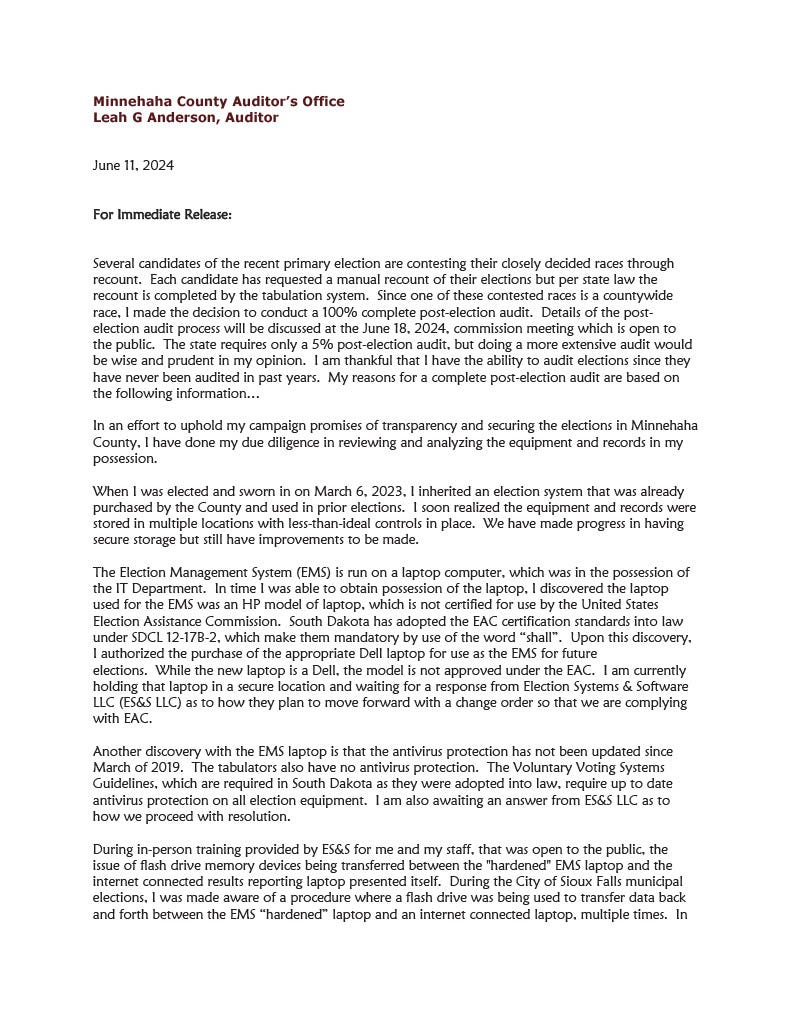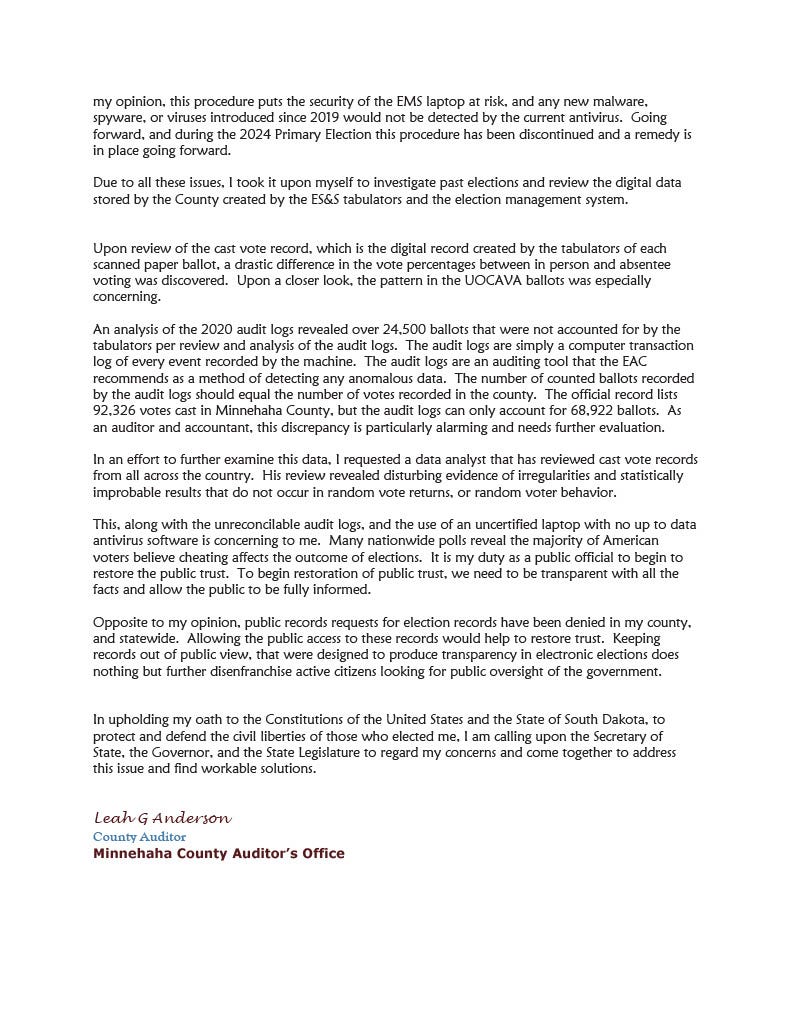Reflections on our primary and how we can fix our elections
And news about CVRs Cast Vote Records in SC and SD
Our June 11th primary had a low overall turnout of around 13%. For comparison, the ‘22 primary turnout was 17.05% and the 2020 primary turnout was 23%. What is particularly curious is that after early voting was instituted, our turnout rates have not increased, while our costs, complexity, and resources have. Why is it that when voters have more time to plan to vote, they don’t show up at the polls? There is a simple psychological answer. Studies consistently show that when people are given more choices (and time to make a decision) it depresses response rates. The cost benefit of early voting and the issue of lower turnout rates are analyzed in this whitepaper by the Heritage Foundation https://www.heritage.org/election-integrity/report/the-costs-early-voting. (Hat tip to Palmetto State Watch for uncovering that study.)
When you have one day to vote you make the occasion more intentional and you mark it on your calendar. If you have two weeks the choice becomes fluid.
In addition to increased costs, there are qualitative issues. Chain of custody is concerning. Many of these machines are left over night in unsecure locations and we can’t necessarily prove that they were not tampered with. For example, if a voting machine was located in a church or school where there are many activities going on during the week it may be exposed to a breach. Furthermore, the early voting centers commingle the precincts making it harder to sort the ballots for a recount. Scheduling staff to work the entire length of an election also becomes more challenging.
Are the costs, complexity, and higher risk of a breach of the ballot or machine chain of custody really worth it? This should be analyzed by our legislators who voted Act 150 into existence in 2022.
Here are some great articles on the topic:
Comparing the Space shuttle Challenger disaster to the early voting strategy
Early voting is like showing your cards to your competition in a poker game
Voter Validation- How can we ensure only legitimate voters vote?
Here is our second gold standard podcast on the importance of Voter Validation which is the 2nd phase of the election process. There are some great real-life stories here that should concern every likely voter.
Check this article and video out here:
https://www.scsafeelections.org/updates/how-to-ensure-only-legitimate-voters-vote/
Cast Vote Records Lawsuit
We continue to fight the egregious lawfare from our own state election agency which doesn’t want to let up on their counterclaim against us. They want the judge to reconsider his dismissal of their suit against us. That’s right, they want to make it so that we can NEVER ASK FOR ANY DATA FROM THE 2020 election under our state Freedom of information Act! AND they want us to pay their legal costs! This is harassment of the citizens and puts a chilling effect on the people of South Carolina who merely want to ask questions about their election. How can we ensure our elections are verifiable if we aren’t able to access any data—NO cast vote records, NO evidence of hash testing or penetration testing, NO ballot review files, NO security logs; we can’t even get CVRs for the logic and accuracy tests. Our election our truly one big black box!
Continue to pray for us and for the judge that he makes a wise decision.
Great news that confirms the value of CVRs- Cast Vote Records
Here is a press release from a fearless auditor in South Dakota
Note that both state of South Dakota (including this county Minnehaha) has the same ES&S system that we have.
Per her release:
“"Upon review of the cast vote record, which is the digital record created by the tabulators of each scanned paper ballot, a drastic difference in the vote percentages between in person and absentee voting was discovered. Upon a closer look, the pattern in the UOCAVA ballots was especially concerning.
An analysis of the 2020 audit logs revealed over 24,500 ballots that were not accounted for by the tabulators per review and analysis of the audit logs. The audit logs are simply a computer transaction log of every event recorded by the machine. The audit logs are an auditing tool that the EAC recommends as a method of detecting any anomalous data. The number of counted ballots recorded by the audit logs should equal the number of votes recorded in the county. The official record lists 92,326 votes cast in Minnehaha County, but the audit logs can only account for 68,922 ballots. As an auditor and accountant, this discrepancy is particularly alarming and needs further evaluation.
In an effort to further examine this data, I requested a data analyst that has reviewed cast vote records from all across the country. His review revealed disturbing evidence of irregularities and statistically improbable results that do not occur in random vote returns, or random voter behavior."
This auditor means business! And is doing her job faithfully and adhering to her oath.








